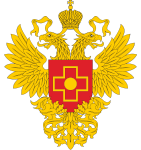
This article is an open access article distributed under the terms and conditions of the Creative Commons Attribution license (CC BY).
REVIEW
Diabetes mellitus management strategies in athletes
1 Federal Research and Clinical Center for Sports Medicine and Rehabilitation of the Federal Medical Biological Agency, Moscow, Russia
2 Office of the Sports Medicine Organization and digitalization of the Federal Medical and Biological Agency, Moscow, Russia
3 Pirogov Russian National Research Medical University, Moscow, Russia
Correspondence should be addressed: Anna A. Pavlova
Bolshaya Dorogomilovskaya, 5, Moscow, 121059; moc.liamtoh@avolvap_rd
Funding: the study relied on the financial support released under the State Assignment No. 67.003.20.800 issued by the Federal Medical Biological Agency of Russia.
Author contribution: Dergacheva LI — significant contribution to the study conceptualization, data collection, content analysis, text authoring; Derevoyedov AA, Parastayev SA — critical review of the content, approval of the final version of the article; Vykhodets IT — approval of the final version of the article; Pavlova AA — text authoring, manuscript formalization.
Glycemic control is the biggest challenge for athletes with diabetes mellitus (DM) on insulin therapy. Done well, it can keep glycogen metabolism normal and allow performance improvement through adjustment of the insulin doses to the specifics of nutrition and exercising. In DM Type 1 and Type 2 patients, intense physical activity and resistance exercising, as well as interval training, enable optimal physiological adaptation during the training period and prove to be beneficial when the athlete does one-time exercise sets. But for athletes with DM on insulin therapy, keeping blood glucose at the optimal level is not the only important issue. It is also necessary to factor in the potential body temperature regulation disturbances that increase the risk of heat stress during training/competition, learn the effects the drugs used by athletes may have on the glycemic status, control electrolyte balance and dehydration, know how to execute the application for permission to use insulin for therapeutic purposes submitted to the anti-doping organization. The purpose of this review was to draw attention of sports medicine physicians and coaches to the above problems and to the need for wider use of the new DM control technology; help athletes with DM on insulin therapy continuously perform well and ensure their athletic longevity.
Keywords: athletes; diabetes mellitus; therapeutic use exemption; insulin; physiological adaptation, sports performance, physical loads/exercises